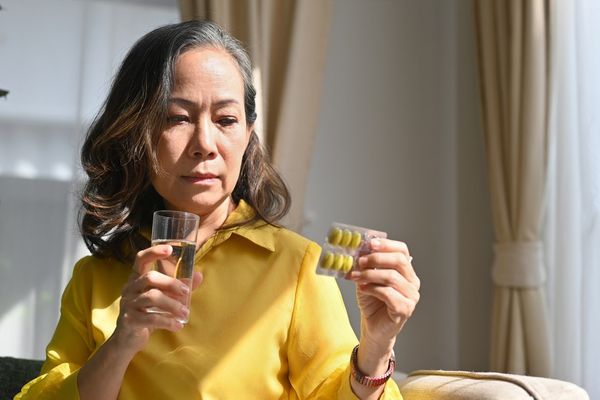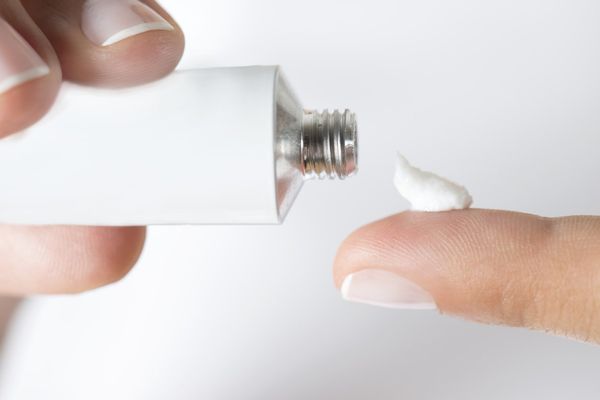Every day about 6,000 women reach menopause and must cope with the many changes it brings to their bodies.
Today, there's more conversation and dialog around this normal change of life than in years past, when menopause was often viewed as a disease, which it is not. And the conversation around menopause is something that Stephanie Faubion MD, MBA, the new medical director of the North American Menopause Society (NAMS), wants to keep going. Dr. Faubion is deeply entrenched in the well-being and health of women, delving into questions that address topics like the wide variations in the way women experience menopause, the variables that influence menopausal symptoms, and how the experience of menopause is impacted by a woman's environment, relationships, psychological and emotional health.
HealthyWomen recently had the opportunity and pleasure of speaking with Dr. Faubion, who is also a practicing clinician in the Woman's Health Clinic and the Penny and Bill George Director at the Center for Women's Health at the Mayo Clinic.
Here's a peek into our conversation, where Dr. Faubion shares what every women needs to know about menopause.
HealthyWomen: Your bio is quite impressive, as is the breadth of work and research you do to support women's health. What drives you?
Dr. Faubion: Women deserve to know all they can about menopause. Unfortunately, there's a dearth of menopause information among medical providers. That's partly due to the hormone therapy (HT) study by the Women's Health Initiative that came out in 2002, linking hormone's usage (then considered the gold standard) to an increased risk of breast cancer, heart disease and stroke. Following that, many women got frightened and discarded their hormones, after which many providers abandoned any sort of treatment for menopausal women. And since these medical providers were the ones who were training the medical residents—the future doctors—menopause education was abandoned. It's not surprising that when the Mayo Clinic and NAMS surveyed residency programs we found that these doctors-in-training had less-than-optimal knowledge of menopause, with significant gaps, to say the least.
HealthyWomen: How has that played out in the way women manage their menopause?
Dr. Faubion: Many physicians (more so in internal and family medicine groups) don't treat menopausal women at all, even though that's half their patient population.
Part of what I hope to accomplish is to get menopause education back into the residency programs so women can improve their health and well-being, preserving their quality of life as they age.
You can hardly blame women for not knowing what's going on. Women are hungry for this information. When we surveyed women as we were launching our women's health center at the Mayo Clinic, they reported that they didn't completely trust the information they were getting from their providers, and many said they go to friends and to online sources to get information. Clearly, there's a lack of knowledge all the way around.
HealthyWomen: Speaking of reaching out to women with information, what are the five most important things you want every woman to know about menopause?
Dr. Faubion:
- We all go through menopause; it's a normal life stage. Menopause can be an exciting time of life, giving you the opportunity to accomplish new and important things.
- You don't have to be miserable; there are a lot of treatments out there, with many new (non-hormonal) drugs in the pipeline to help manage hot flashes.
- If your healthcare provider tells you to “suck it up," that may be a cue to find someone new, or keep pushing to make sure you have all the information you need.
- Symptoms can last a long time. The average duration of hot flashes is seven to ten years, and about one-third of women will have them for 11 years or longer. We used to tell women that they'll be fine in a year or two, which is so far from the truth!
- Be aware that many chronic diseases of aging begin after menopause, which is why it's important to look at the big picture and take stock of your health around this time. Check on your blood pressure, lipids and heart disease risks. And don't ignore your mental health, especially if you've had mood issues prior to menopause.
HealthyWomen: In the perfect world, how would you like women and those around them to view menopause and the years following it?
Dr. Faubion: It's a relatively new age for menopause because women are now living longer, and that means we're living at least one-third of our lives after menopause. This is unchartered territory for us as a species.
I want menopause to be a topic we can all discuss; one that isn't just talked about between women on the side.
It's also imperative to understand the impact menopause can have in the workplace. Untreated symptoms have an enormous economic impact, directly affecting healthcare costs and productivity. We must all learn new ways to better accommodate women in the workplace to help as they transition through menopause.
- What You Need to Know About Menopause and Breast Cancer ›
- How Does a Hysterectomy Affect Menopause? ›
- 10 Things the Men in Your Life Need to Know About Menopause ›
- What You Need to Know to Prepare for Menopause ›







